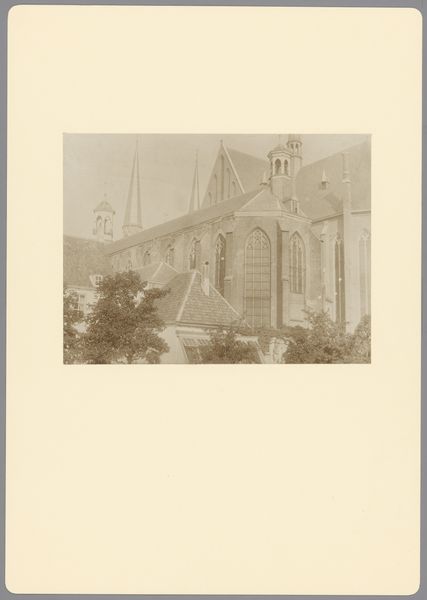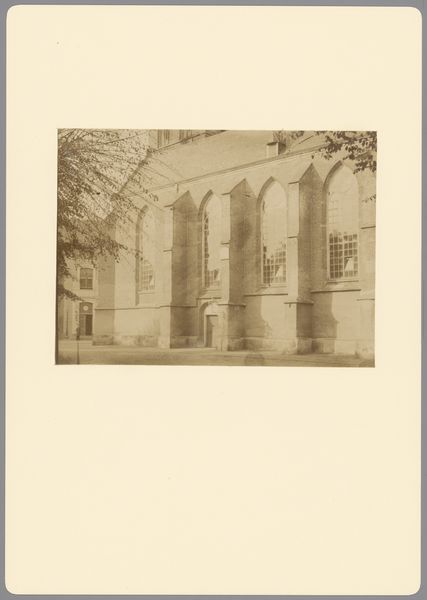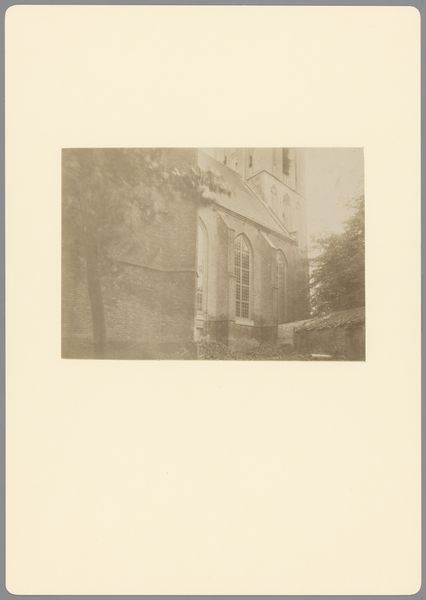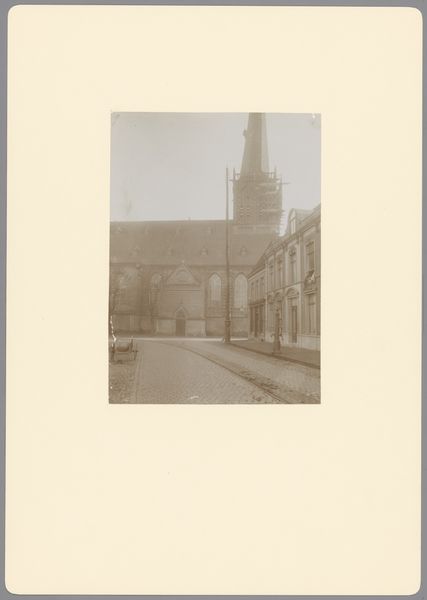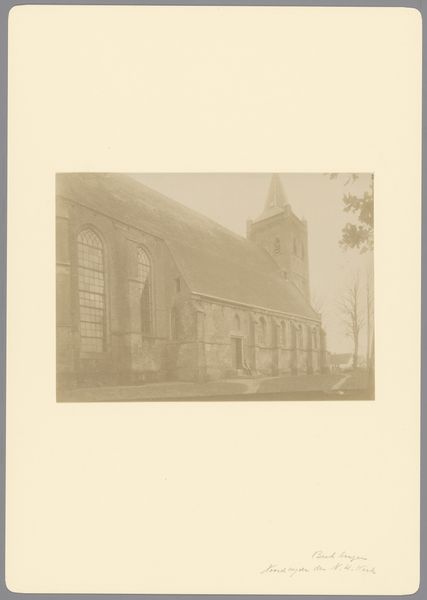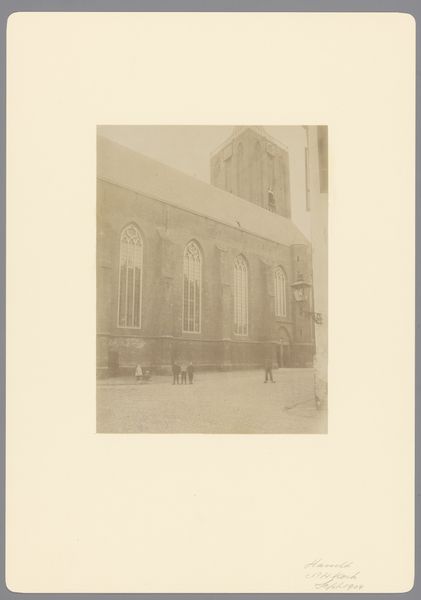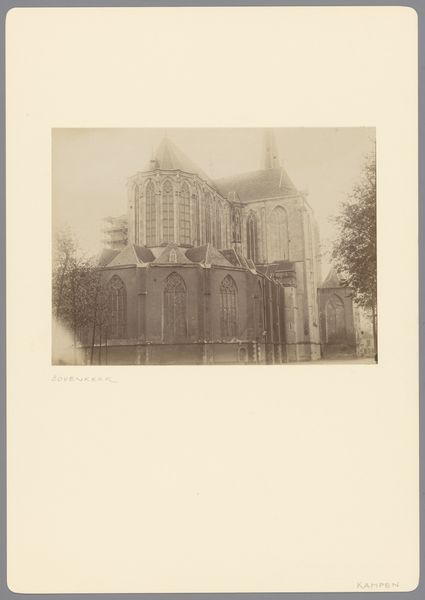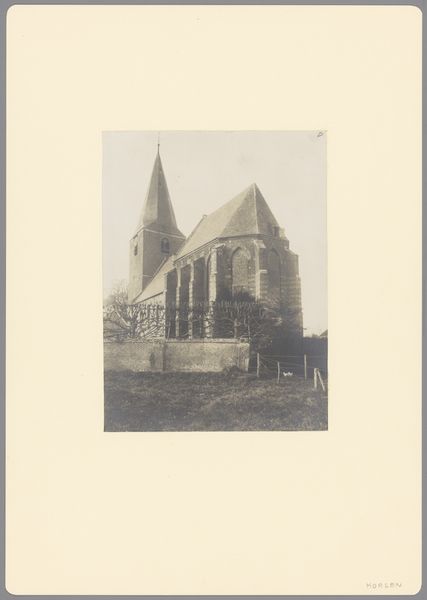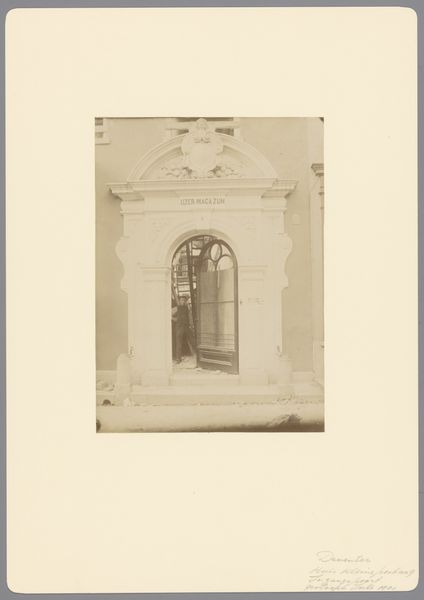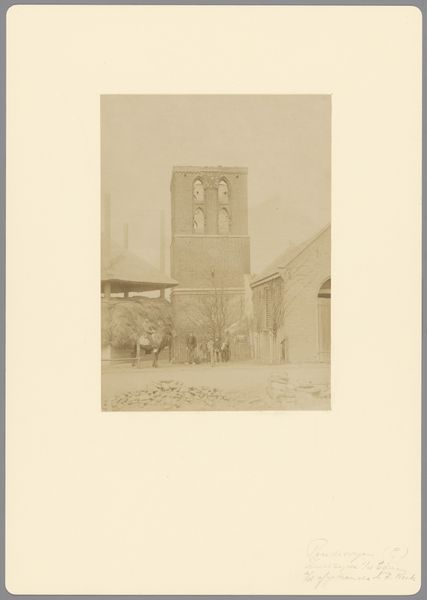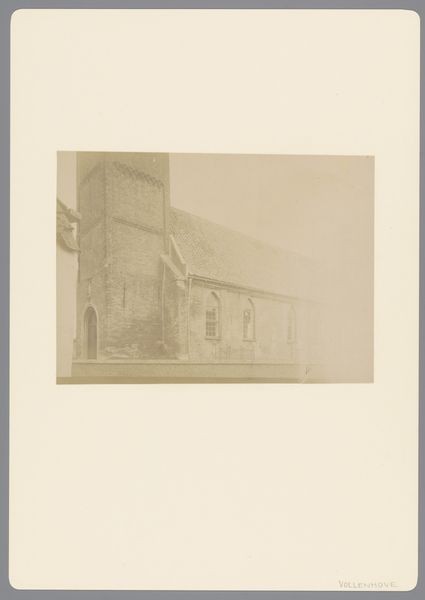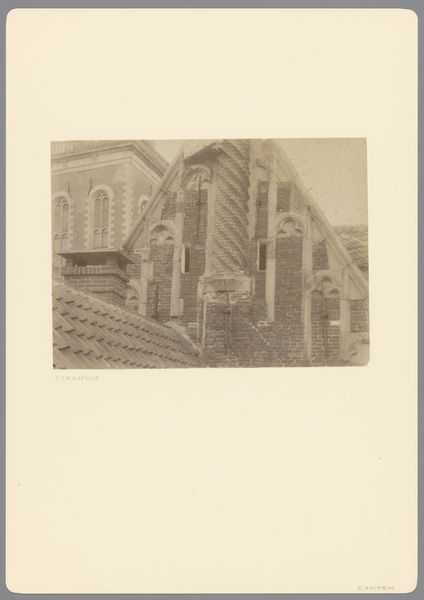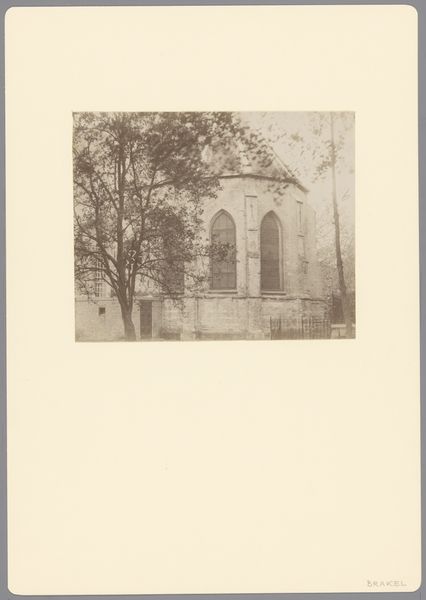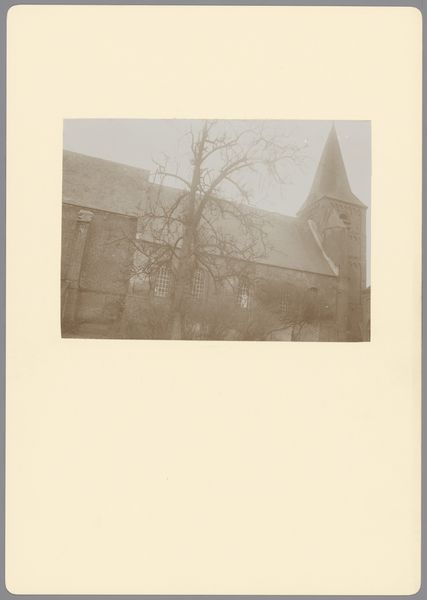
Dimensions: height 172 mm, width 232 mm
Copyright: Rijks Museum: Open Domain
This photograph, titled "Zijaanzicht van de Bovenkerk te Kampen," showing the side view of the Upper Church in Kampen, was made by an anonymous photographer from the Monumentenzorg, or Dutch National Heritage Agency. The image speaks to the evolving role of photography in documenting and preserving cultural heritage. In the absence of a known artist or precise date, the institutional context becomes key. Monumentenzorg's use of photography suggests a desire to systematically record architectural details, likely for conservation purposes. The choice of a side view, with its emphasis on the structural elements and repetitive Gothic windows, implies a focus on the church as a physical artifact rather than a spiritual symbol. To better understand the photograph’s significance, we might turn to the Monumentenzorg archives, historical records of Kampen, and studies of early photographic practices. What can we learn from the institutional forces that shape the production and reception of this image? How does it reflect a changing relationship to the past?
Comments
No comments
Be the first to comment and join the conversation on the ultimate creative platform.
